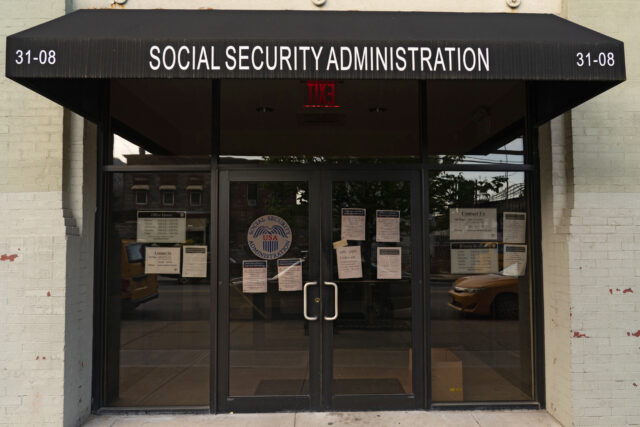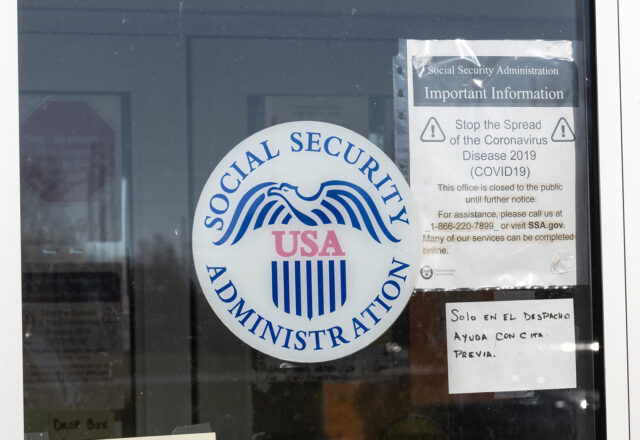
More Cuts to 401k Matches are Coming
To conserve cash, some employers are suspending contributions to their workers’ 401(k)s. And if this downturn plays out like previous recessions, more will follow.
The handful of employers announcing suspensions in recent weeks include travel companies and retailers hit first and hardest by shrinking consumer demand, including Amtrak, Marriott Vacations Worldwide, the travel company Sabre, Macy’s, Bassett Furniture Industries, Haverty Furniture Companies, and La-Z-Boy.
Tenet Healthcare and a physician practice in Boston on the front lines of providing expensive coronavirus care have also suspended their matches. Employees, not surprisingly, are unhappy with these moves. An emergency room doctor told The Boston Globe that his organization’s decision comes as he is “working huge extra hours trying to scrape together [personal protective equipment] and otherwise brace for COVID-19.”
Employers are required to give their workers a 30-day notice and cannot stop the match prior to the 30-day period.
Suspending matching contributions has become somewhat of a recession tradition. In the months following the September 2008 market crash, more than 200 major companies rushed to do so, according to the Center for Retirement Research. The firms’ primary financial motivation was easing an immediate cash-flow constraint – not a concern about profits – the researchers found.
But cutting 401(k) contributions may be a small price to pay for mitigating layoffs, said Megan Gorman, a managing partner with Chequers Financial Management in San Francisco. “It might be a stop gap to help save the business in the long run,” she said. A typical employer matches 50 percent of employee contributions up to 6 percent of their salaries.
Amy Reynolds, a partner at Mercer Consulting, said the bigger danger for workers’ future retirement security is tapping their 401(k)s to pay their routine expenses in a tough economy. As part of the rescue package Congress passed in March, workers can withdraw up to $100,000 without paying the 10 percent penalty usually imposed on 401(k) withdrawals by people under 59½. “We want them to be thoughtful and consider other sources before they get to that,” Reynolds said.
She said matching contribution suspensions are often temporary and are reinstated as things get back to normal. That’s what happened in 2010, when companies slowly restored all or part of their contributions as the economy recovered.
Employers use 401(k) matches to hire and retain talented employees, and Reynolds noted that suspending contributions isn’t something they want to do. One thing distinguishing this economic downturn from previous recessions, she said, is that some companies are sharing the pain by cutting top executives’ compensation at the same time.
Marriott Vacations announced it would cut executive salaries by 50 percent, and Sabre is reducing its CEO’s base pay by 25 percent.
“We are seeing this go-around trying to minimize the layoffs as much as possible and executives allowing themselves to be impacted more,” Reynolds said.
Read more blog posts in our ongoing coverage of COVID-19.
Squared Away writer Kim Blanton invites you to follow us on Twitter @SquaredAwayBC. To stay current on our blog, please join our free email list. You’ll receive just one email each week – with links to the two new posts for that week – when you sign up here. This blog is supported by the Center for Retirement Research at Boston College.
Comments are closed.







Kim, thank you for the insights. It really gives me some food for thought when consulting with clients that are currently looking for a job. Keep up the good work.
You might want to consider the impact of cutting contributions when assets are cheap and increasing contributions when assets are overpriced on the long term rate of return.
When 401(k)s were just getting started in the 1980’s, they were looked upon as a supplemental employee benefit to attract workers. As they gained popularity employers saw them as a way to replace more costly defined benefit plans and shift the onus of retirement to workers. In those early days, matching funds were a tough sell to employers but that changed when the retirement plan world tilted to 401(k) over Defined Benefit plans and profit sharing plans.
P.S. Any news about what’s happening to existing DB plans? How is their funding holding up?
Thanks Kim. Steve’s point is well taken.
Thanks Kim. Keep up the good work.